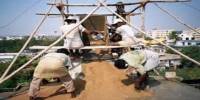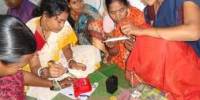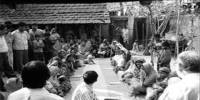Relation between education and empowerment:
From the above discussion present researcher has shown several theories regarding psychology of women including the theory of differentiating between the groups of female students having same academic background. In the second segment it has shown the theories regarding the higher education of human being as well as female education. Among the theorists of higher education Plato has emphasized on the boys and girls education. Rousseau has indicated the female education as the pleasure of men. On the other hand Paulo Freire has emphasized on the education of impoverished group that they can participate in the national aspects. As a feminist Marry Wollstonecraft has said in her book A Vindication of Rights of Women that women should get the opportunity to participate in the formal institutions and also rational education. In this portion the relation between higher education and empowerment will be shown as identified in the book of Nazmunnessa Mahtab, ‘Women, Gender, and Development contemporary issues’.
There is a growing consensus now that education irrespective of who receives it, contributes to development. It raises income, promotes health and increases productivity. There is also a consensus that when women are the recipients, the benefits are even more apparent. Increasing education of women and girls contribute to their greater empowerment.
After accumulating the above theories the conceptual framework of this study has shown below with a diagram:
Conceptualizing the study:
In the above figure, the author has conceptualize the main concept of the research that the socio economic background influence the higher education of female students and it creates the self actualization and autonomy among them as well as the higher education of female students influence the empowerment of them. The socio-economic background of the study is divided in two ways those are the information of the family members including the number of the family, the education of the family members, the occupation of the family members etc. In this study I have conceptualize that the barriers of higher education including gender discrimination, the obstacles in the higher education level etc.
Variable specification:
There are two types of variables in this study those are independent variable and dependent variable. In the following two types of variables have provided.
Operationalization of the variables:
To make the research findings and analysis clear these some indicators have been presented in the following with definition.
- Socio-economic background: Socioeconomic status (SES) is an economic and sociological combined total measure of a person’s work experience and of an individual’s or family’s economic and social position in relation to others, based on income, education, and occupation (compiled from Wikipedia). In this study the information about the family members including the income, education, age, marital status, and occupation are considered as socio-economic background.
- Education: Education in its broadest, general sense is the means through which the aims and habits of a group of people sustain from one generation to the next (http://en.wikipedia.org/wiki/Education). Education of mother and father are independent variable for the present study. To measure influence of educated mother and father in the education of female students this variable has been selected.
- Higher education: Higher education in this study is the University education includes honors and Masters level. Generally there are three stages of education those are primary, secondary and tertiary. In this study the tertiary education is major concentration. Higher education is the institutional and formal education for female students to make them self dependent, empowered.
- Faculty: A faculty is a division within a university comprising one subject area, or a number of related subject areas (http://en.wikipedia.org/wiki/Faculty_(division).
- Occupation: Occupation refers to a regular activity performed for payment that occupies one’s time (http://en.wikipedia.org/wiki/Occupation). Higher occupation of parents will influence higher education of female respondents.
- Residence: A residence is an establishment where it was originally or currently being used by a host as their main place of dwelling or home (http://en.wikipedia.org). In this study there are two types of residence those are Hall in the campus of Jahangirnagar and D.U. There are also respondents in this study who live in Dhaka city in their home not in the campus.
- Family size: In this study family size refers to the total number of family members. To measure family size numerically several ranges have been added in the study.
- Religion: A specific fundamental set of beliefs and practices generally agreed upon by a number of persons (dictionary.reference.com/browse/religion). Education of different female students varies according to different religion.
- Family income: Family is the basic institution in the society is the most patriarchal in nature (Nazmunnessa Mahtab, 2012). Family income is the total income of family members of respondents.
- Empowerment: Rao and Kelleher (1995) define women’s empowerment as the capacity of women to be economically self-sufficient and self-reliant with control over decisions affecting their life options and freedom from violence. In this study the empowerment of the women defined through the level of influence in the family, choice of the profession, etc.
- Involvement with Organization: There are several organizations in campus of the University. There are social, voluntary, political organizations in campus. Involvement with organization creates opportunities to set goals, initiate goals, making decisions etc.
- Involvement with profession: Professions tend to be autonomous, which means they have a high degree of control of their own affair (en.wikipedia.org/wiki/Profession). Though respondents may not in full employment but they may involve with part time job, tuitions etc. Involvement with profession by respondents’ show that they are empowered then those who have no profession.
- Influence in decisions of family: Influence of respondents in family decisions like education and marriage of siblings, selection of design of house etc. They can influence in the family because of self confidence and their education.
















